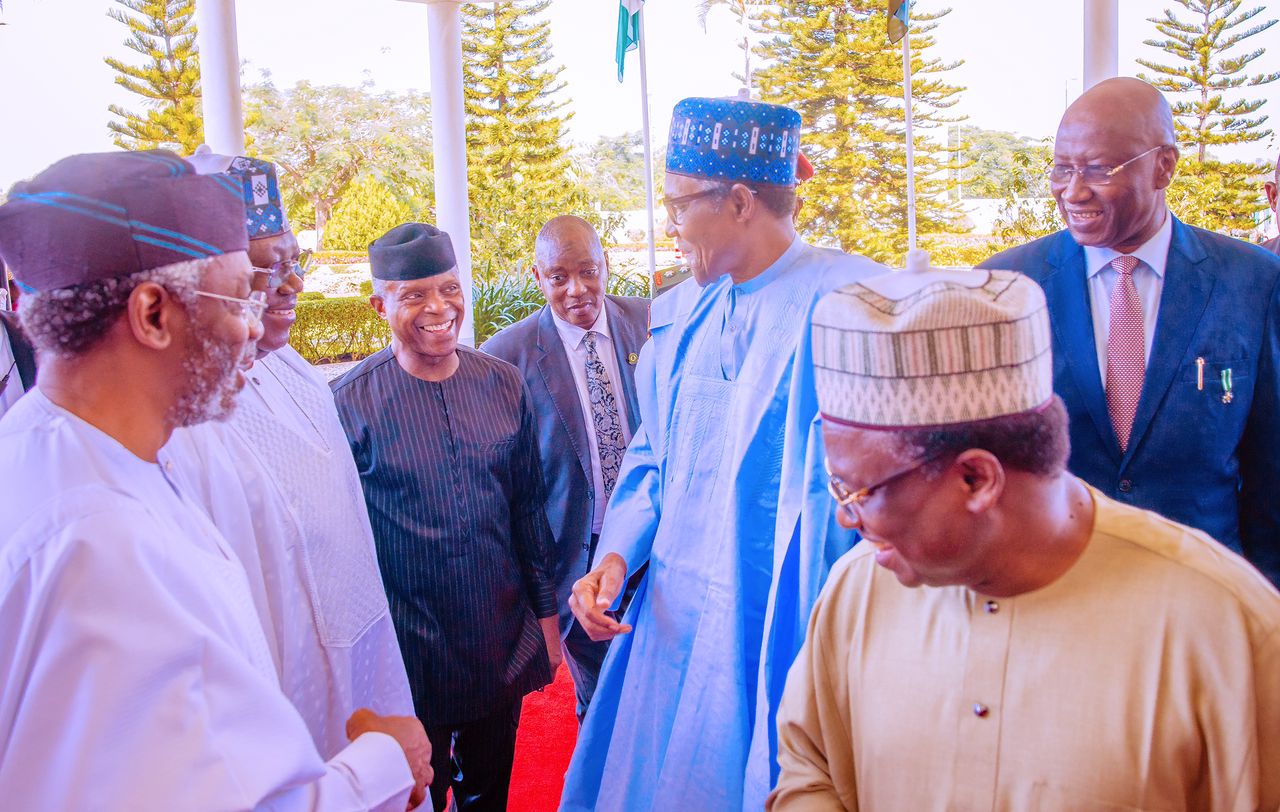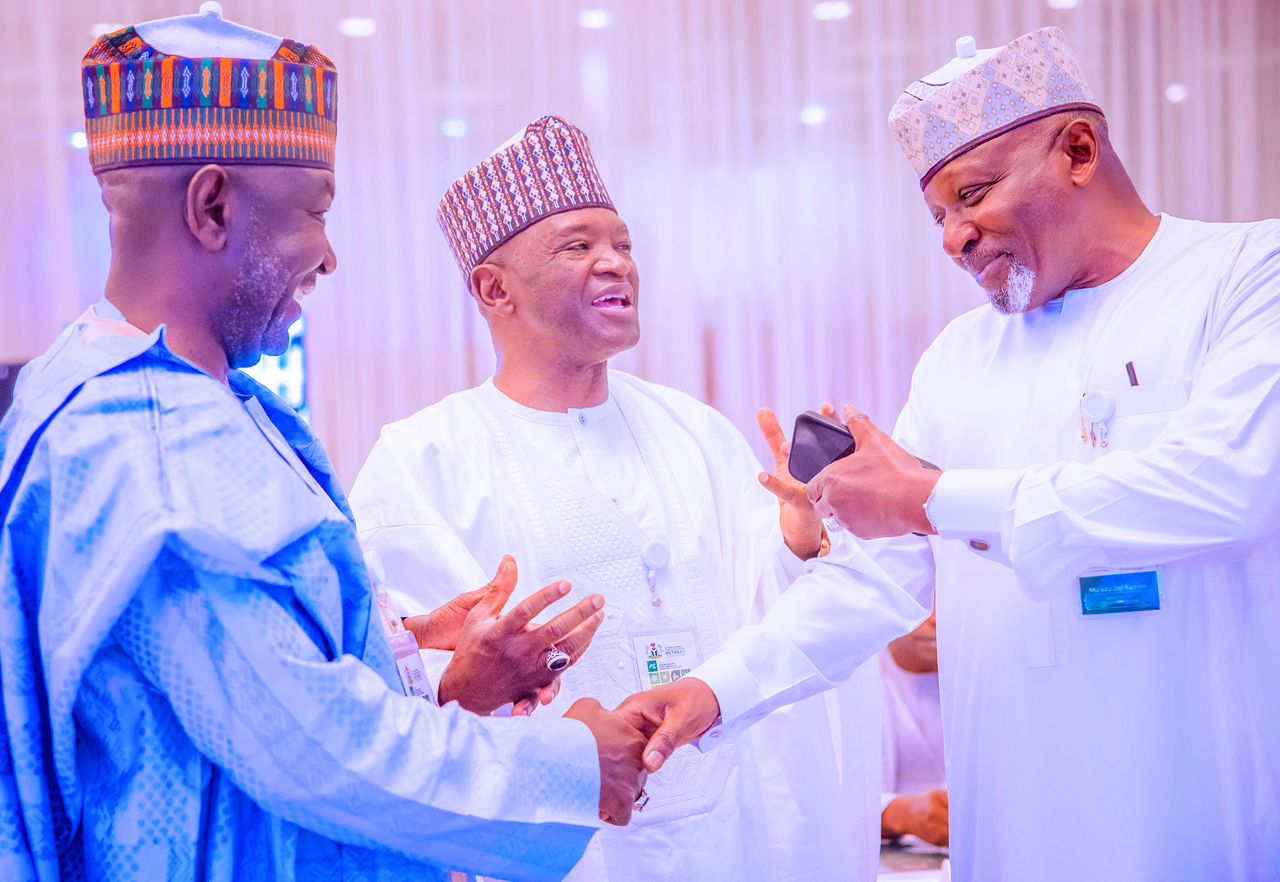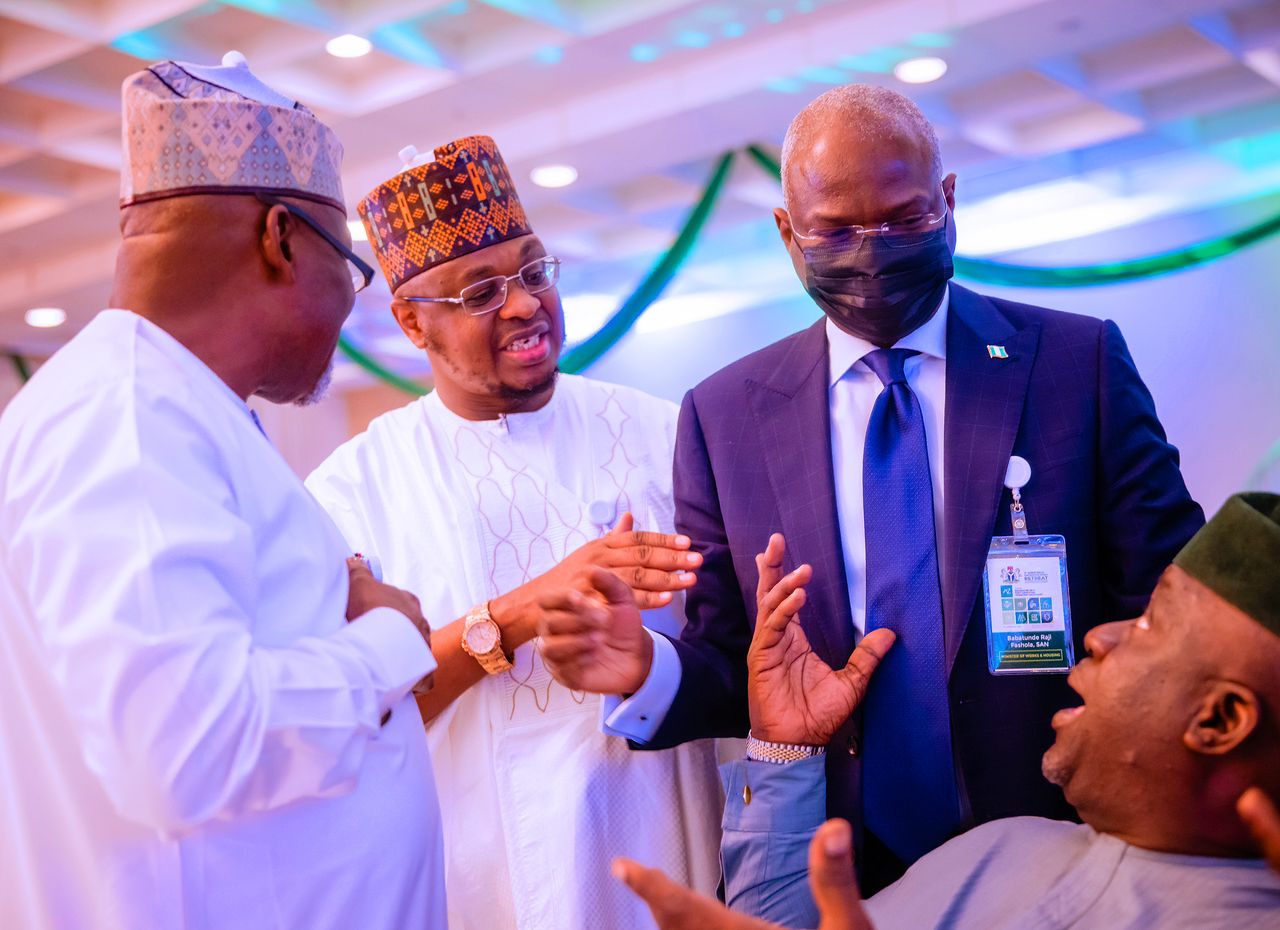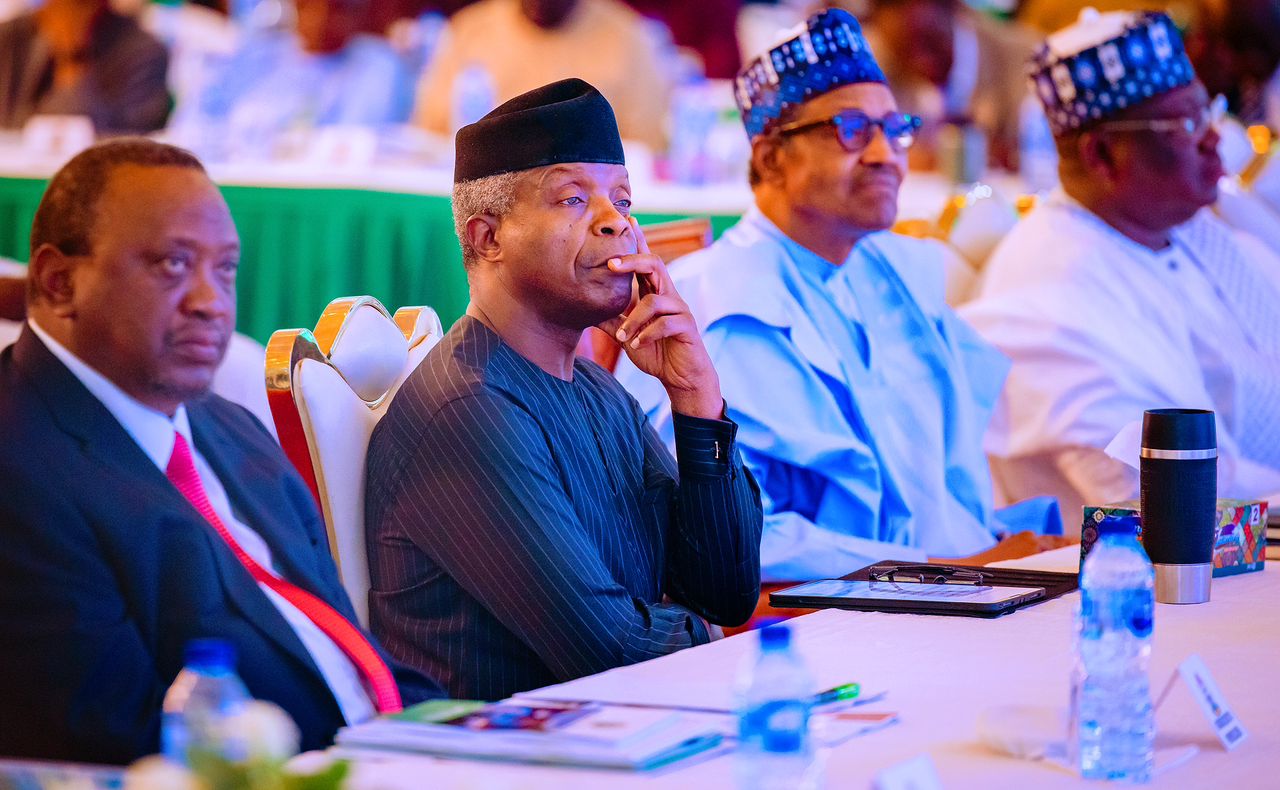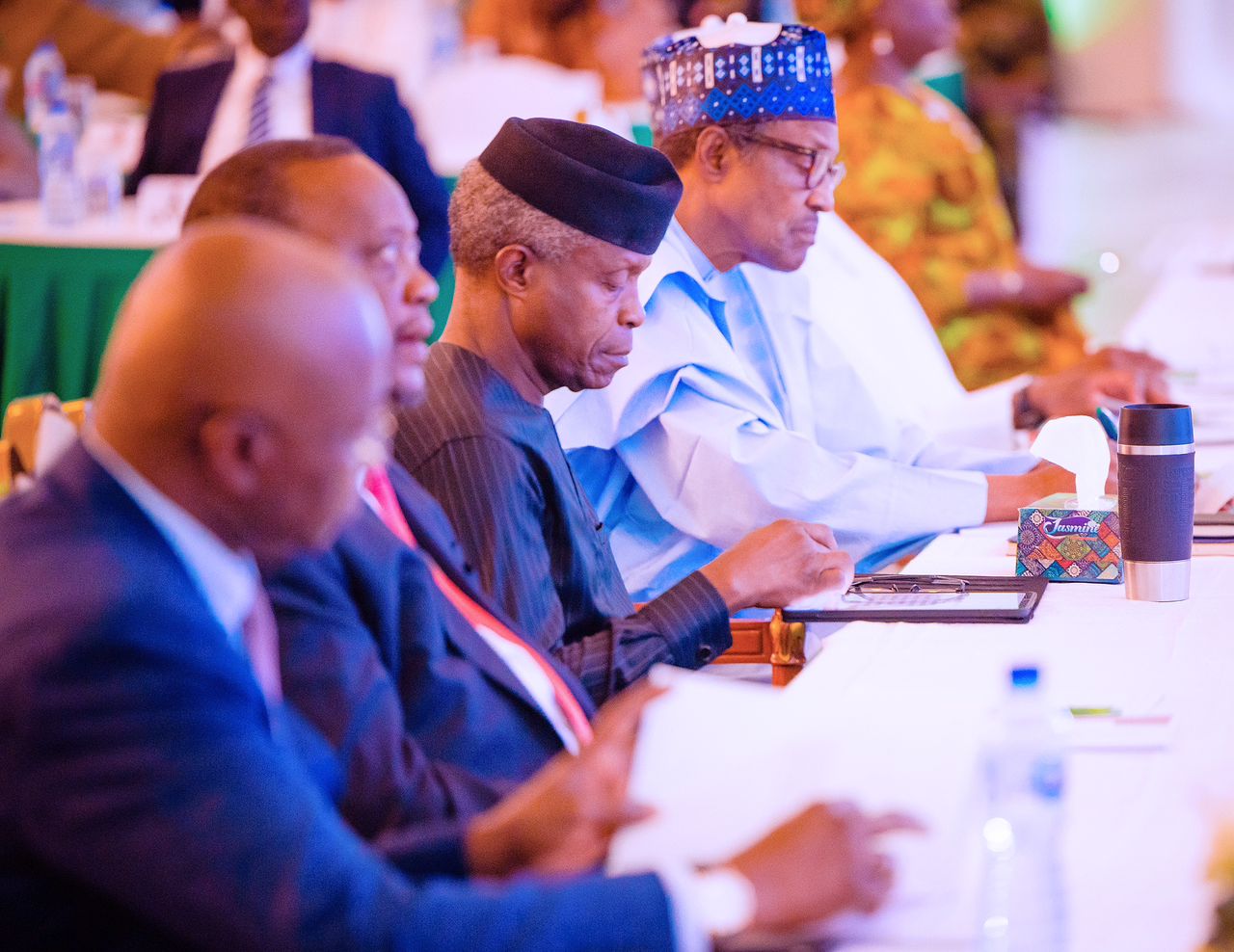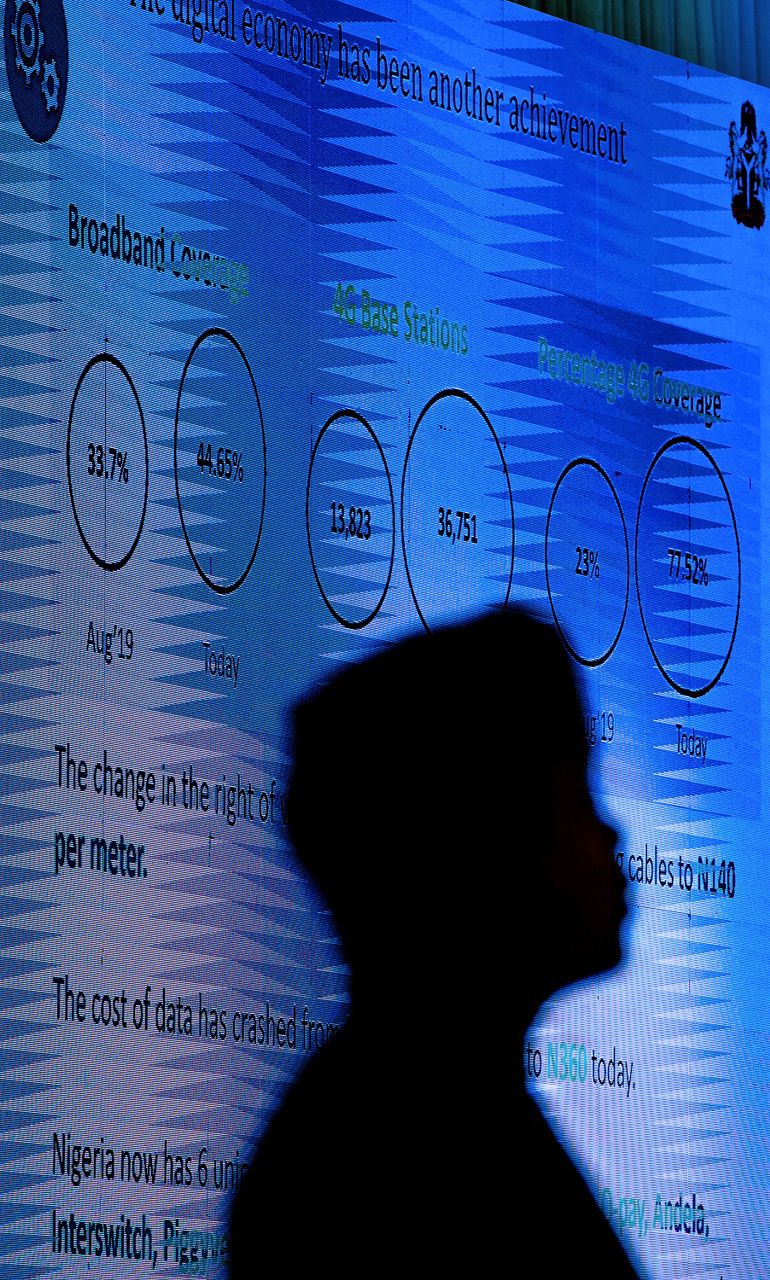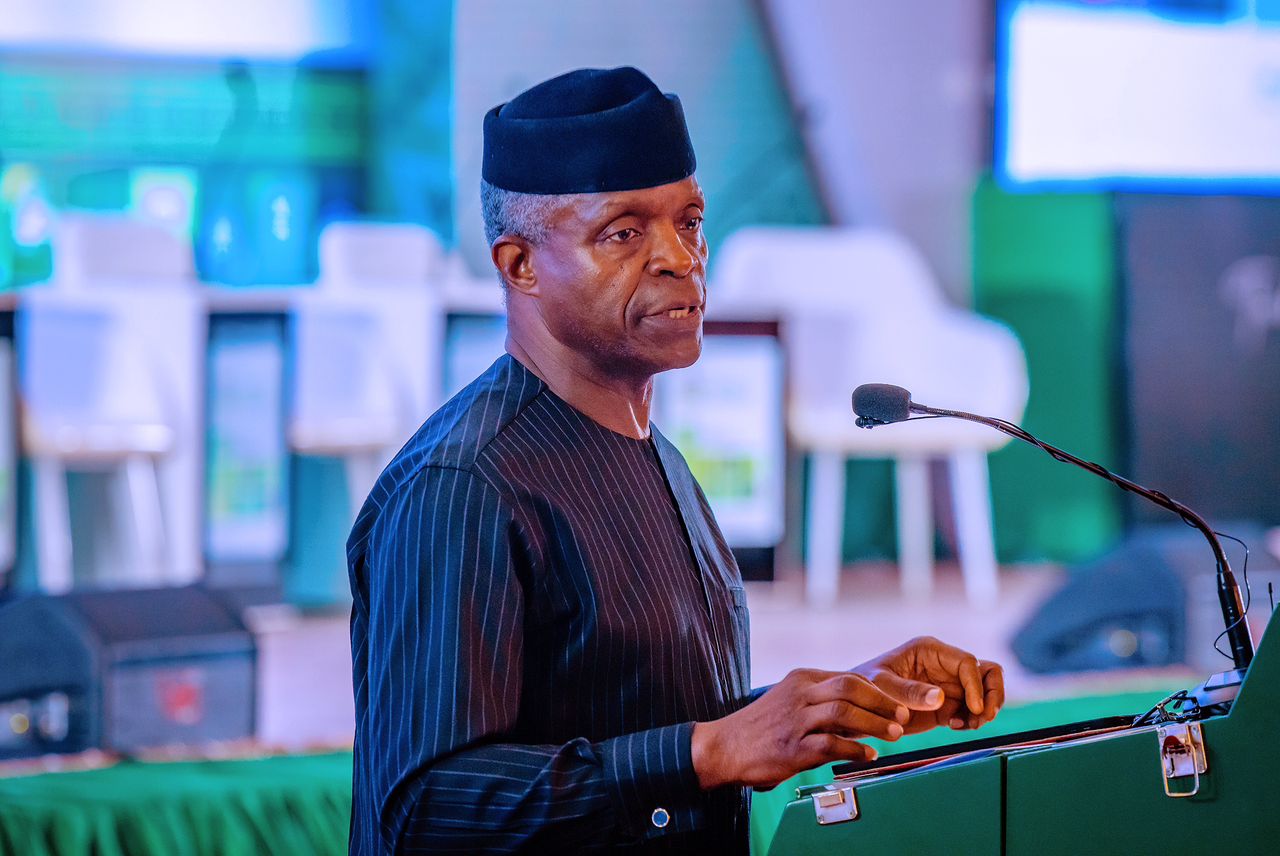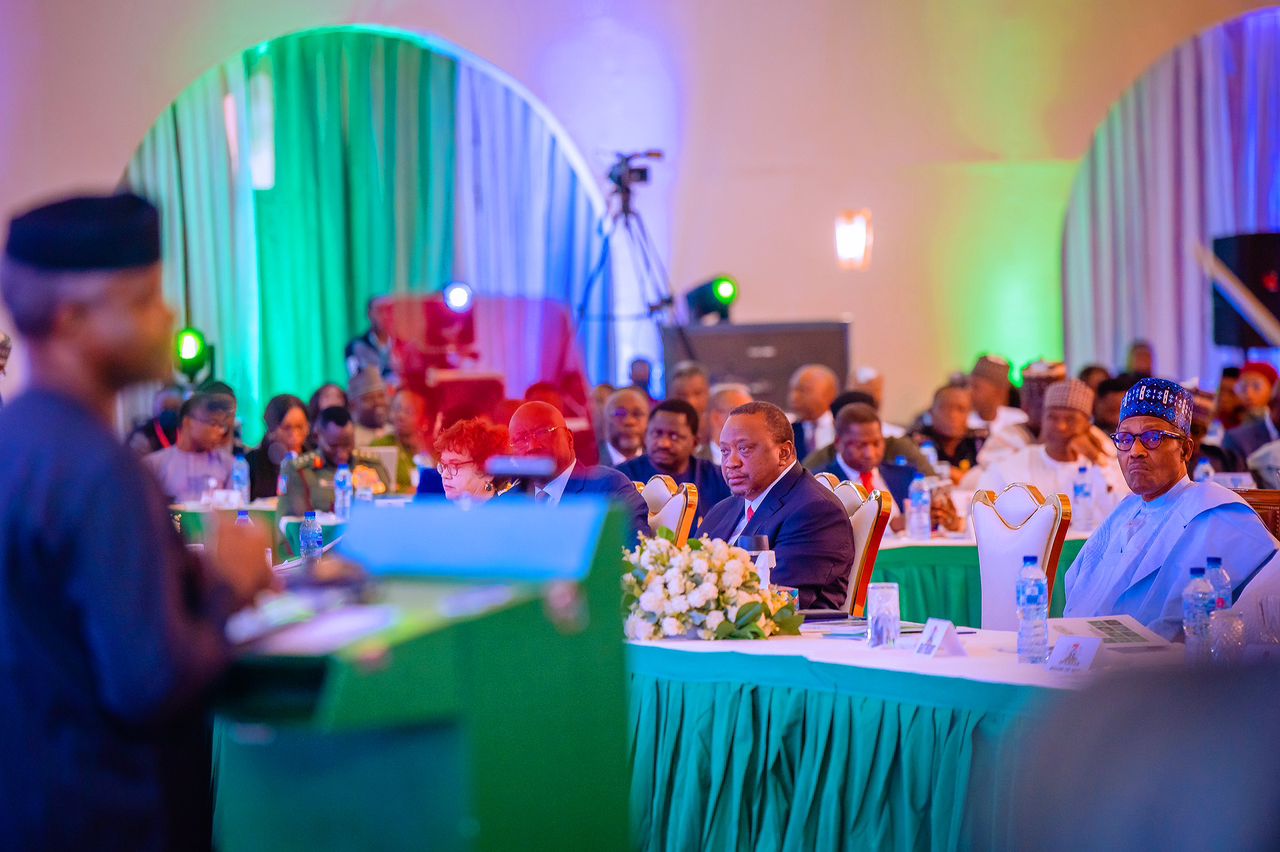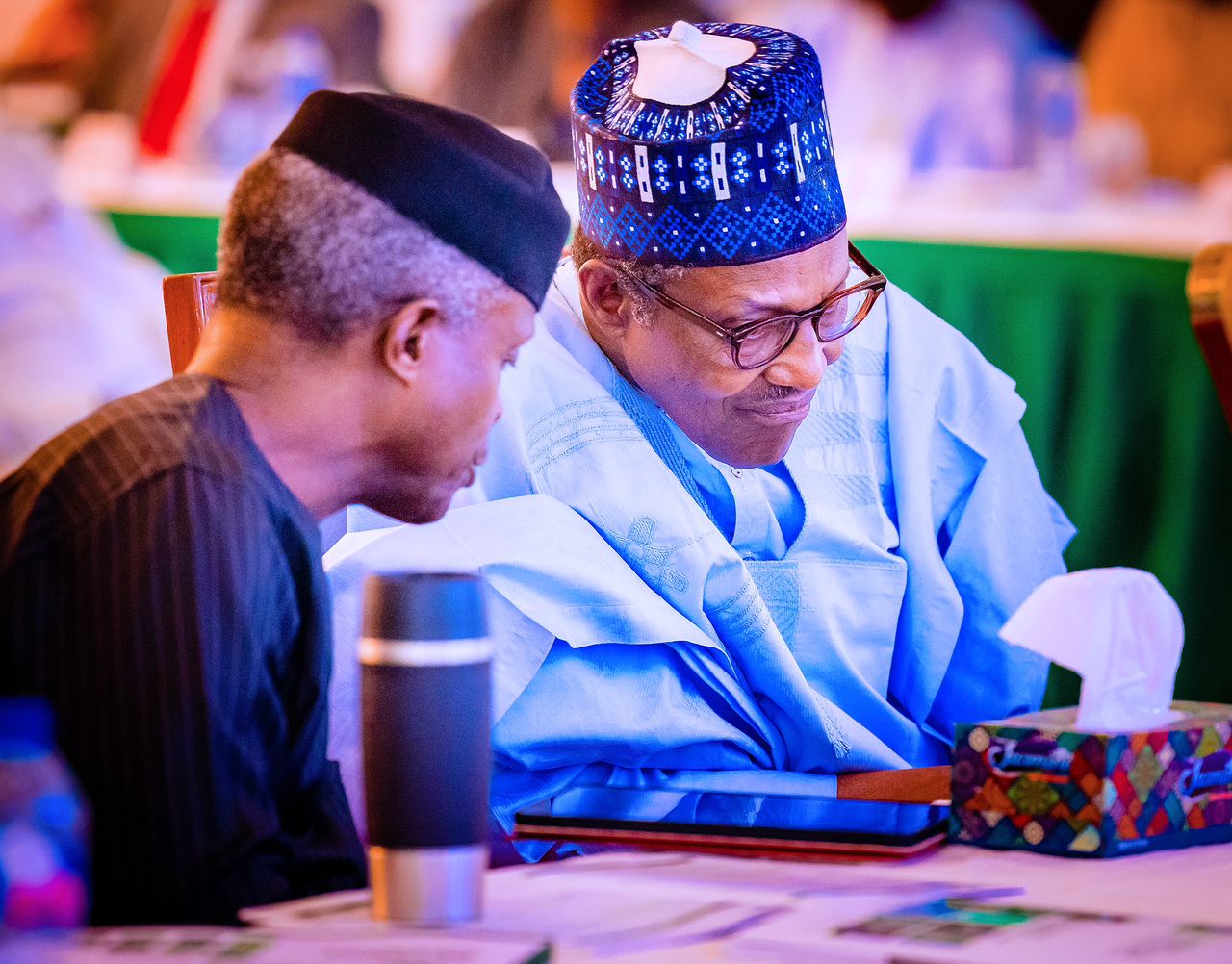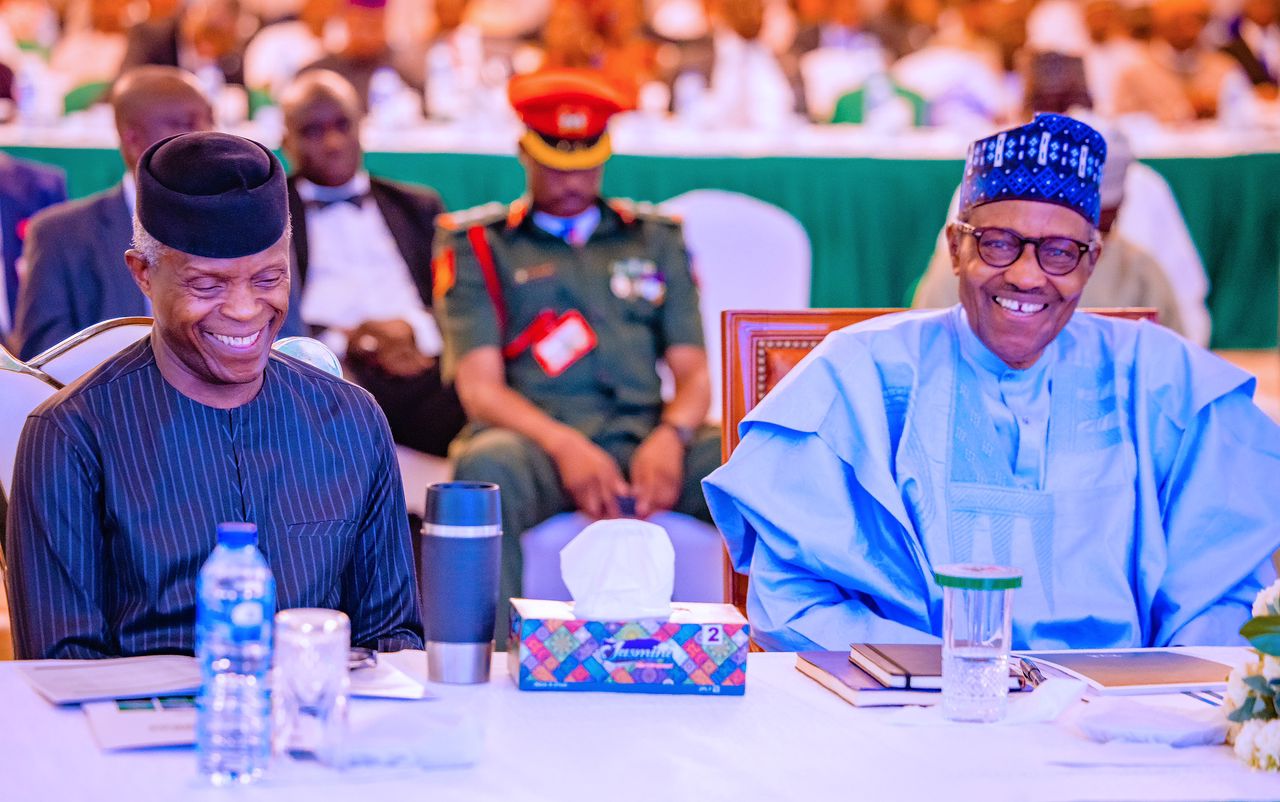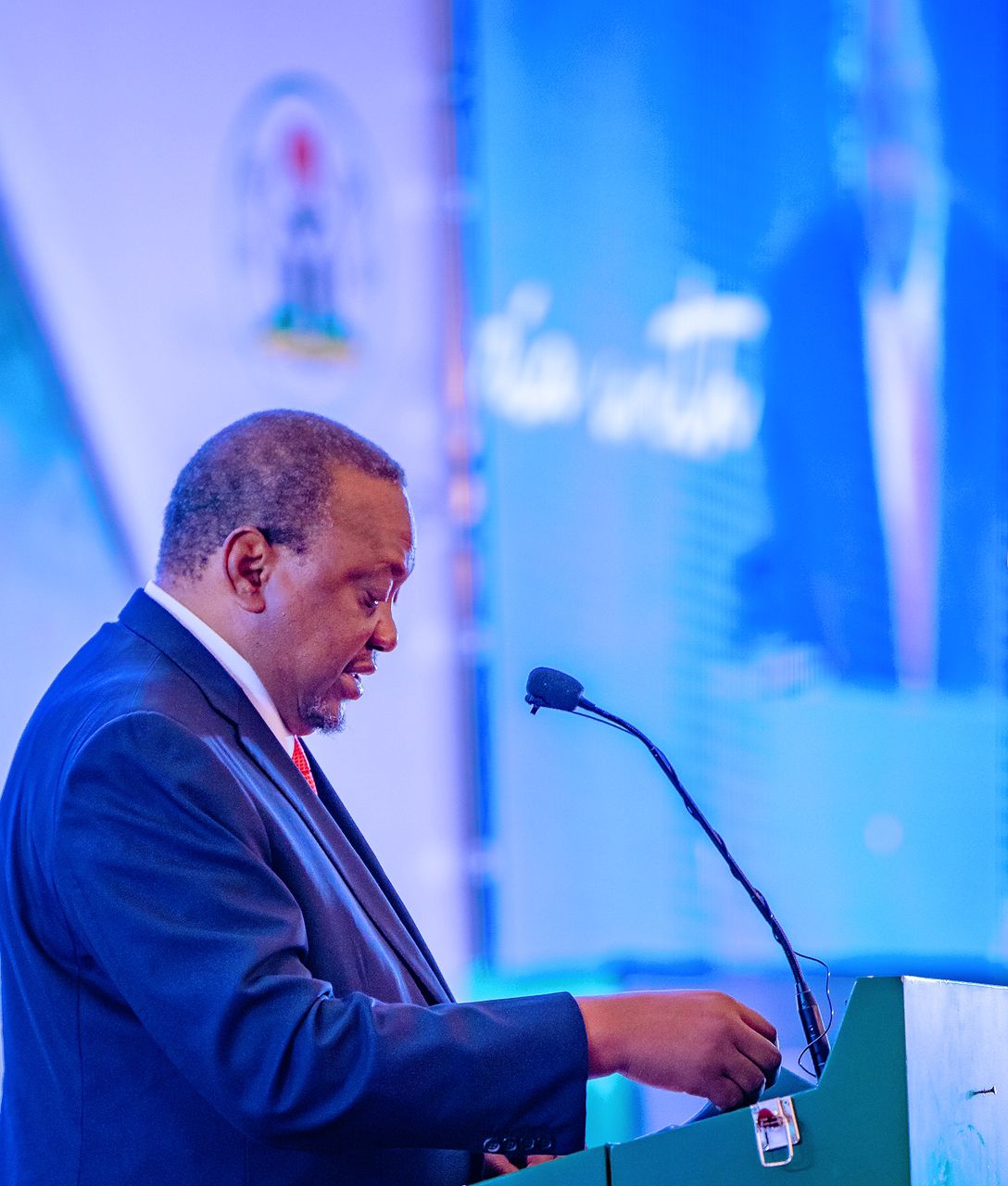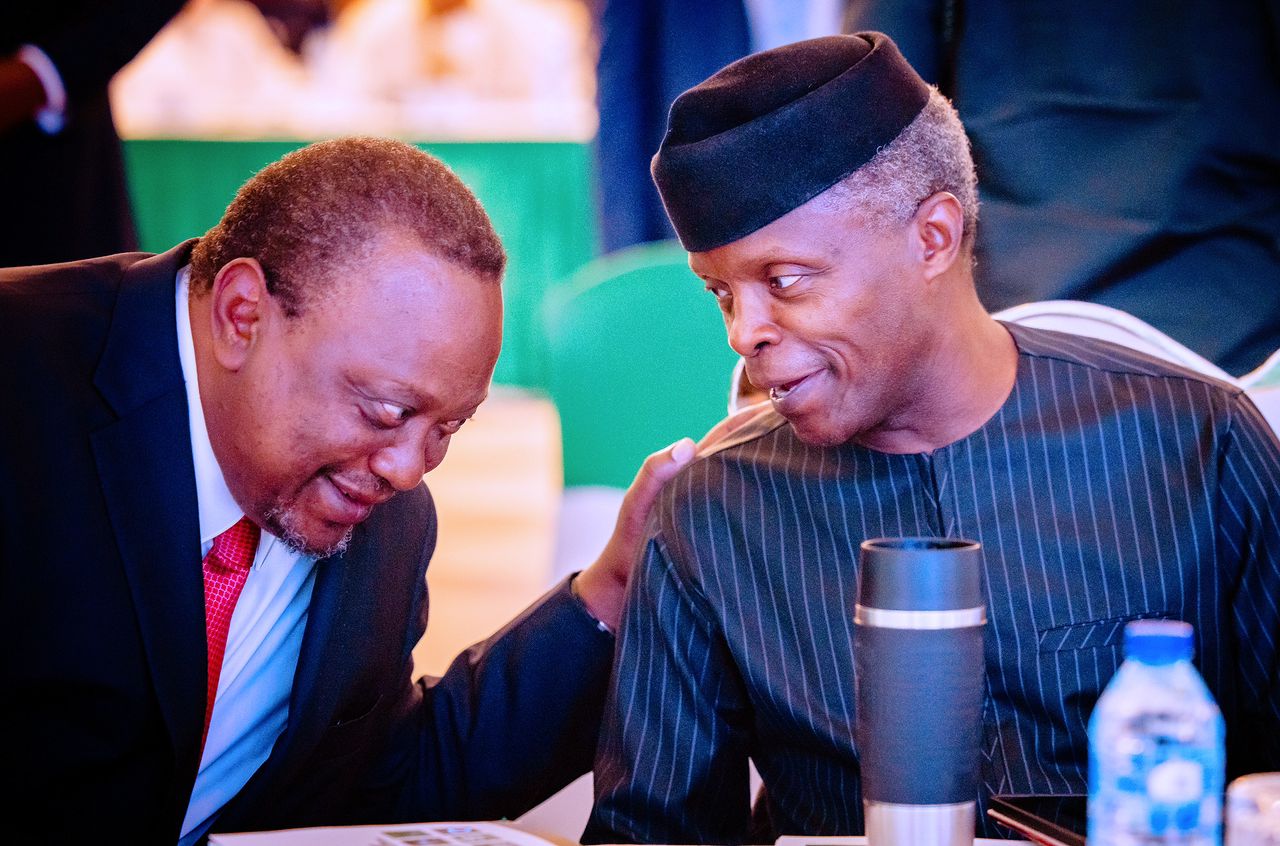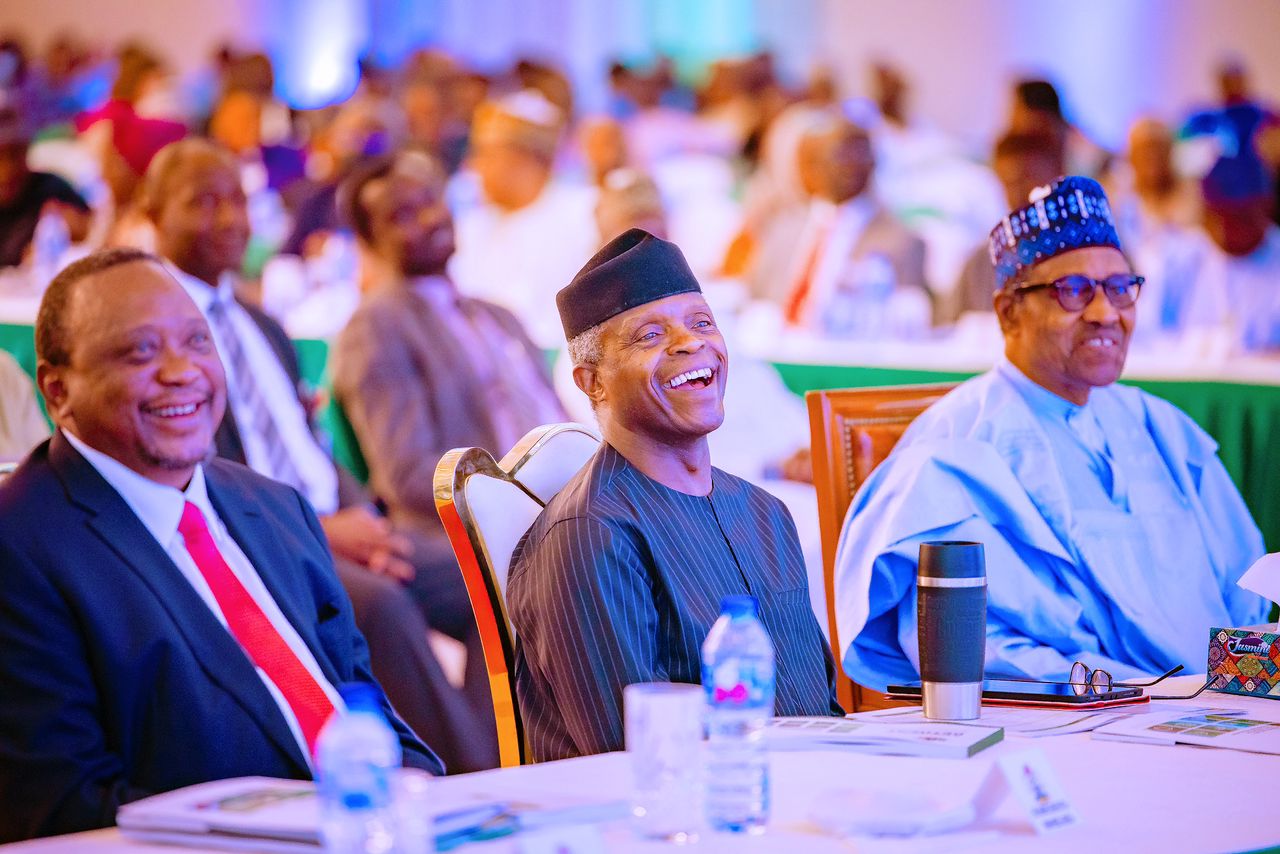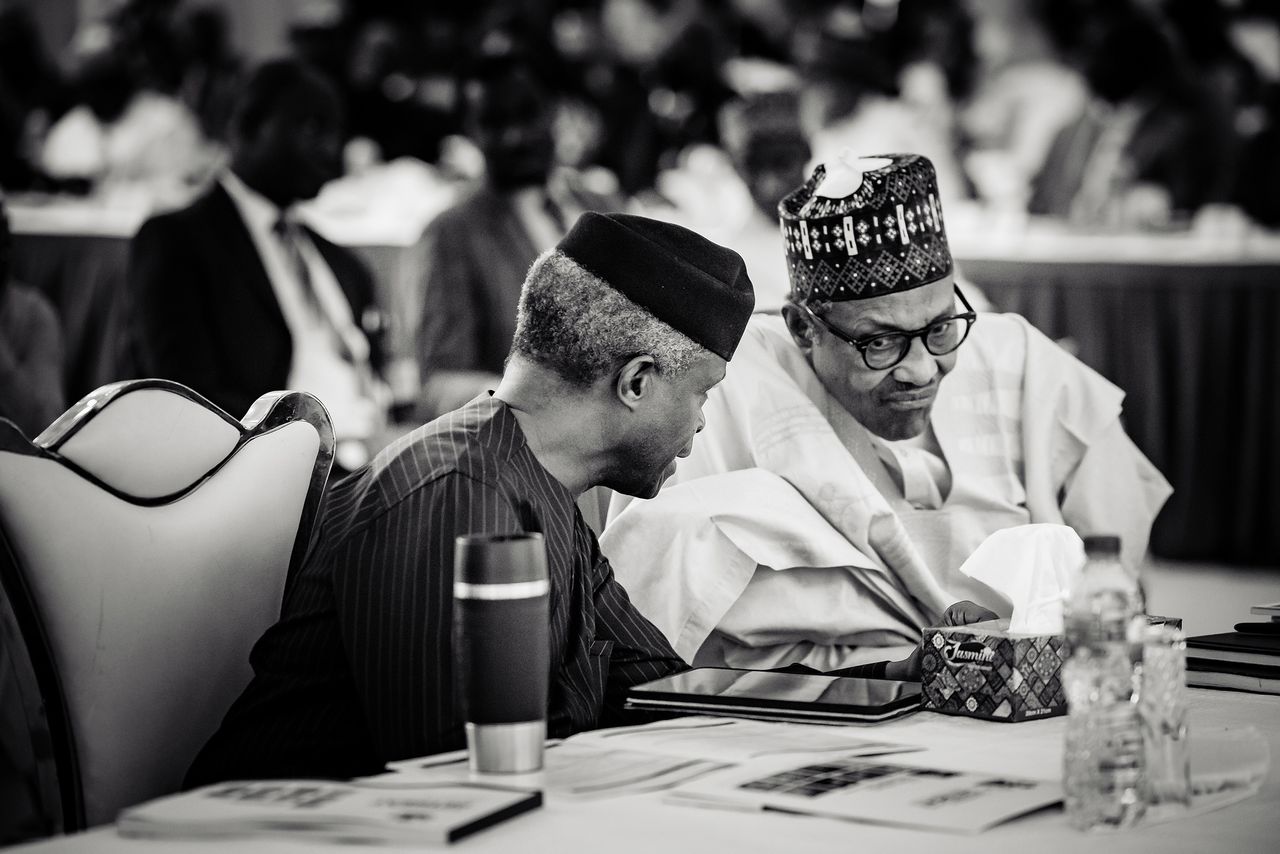3rd Ministerial Performance Review Retreat Of The Buhari Administration
OSINBAJO DETAILS BUHARI ADMINISTRATION’S GAME-CHANGING ACHIEVEMENTS, CALLS FOR BETTER FOREX MANAGEMENT
*VP restates need for synergy between fiscal, monetary policies
As the Buhari administration takes stock of its achievements over the years, Vice President Yemi Osinbajo, SAN, has listed interventions in infrastructure, power, digital economy, ease of doing business and social investment, as some of the regime’s game-changing accomplishments.
Prof. Osinbajo stated this on Monday in his presentation at the opening of the 3rd Ministerial Performance Review Retreat in Abuja.
The game-changing achievements of the administration listed by the Vice President include:
*Development of infrastructure (roads, rail, to power, and broadband infrastructure), especially the creativity introduced to infrastructure financing.
*The power sector interventions and initiatives (Solar Naija Programme launched under the Economic Sustainability Plan; improvement in generating capacity; 266 Captive Power Plants and 16 Embedded Power Plants etc)
*Digital economy innovations (including rapid expansion of broadband access and digital identity)
*Ease of Doing Business Reforms (including legislative and justice sector reforms)
*The Social Investment Programme (award-winning microcredit scheme for informal traders under the Government Enterprises and Empowerment Programme, N-Power and School Feeding Programme etc)
The Vice President also spoke on the need to ensure synergy between fiscal and monetary policy in order to better manage the economy and exchange rate concerns.
He said: “The discussion that we must now have and going forward is how best to manage the situation by finding a mechanism for increasing supply and moderating demand which will be transparent and will boost confidence.
“I think that a more market-driven approach will be best, some price discovery within the context of a managed float is certainly required.”
REMARKS AND PRESENTATION BY HIS EXCELLENCY, PROF. YEMI OSINBAJO, SAN, GCON, VICE PRESIDENT OF THE FEDERAL REPUBLIC OF NIGERIA AT THE 3RD MINISTERIAL PERFORMANCE REVIEW RETREAT OF THE BUHARI ADMINISTRATION AT THE STATE HOUSE CONFERENCE CENTRE, PRESIDENTIAL VILLA, ABUJA ON THE 17TH OF OCTOBER, 2022
PROTOCOLS
I am to speak on the subject, “The President Muhammadu Administration, Reflections On The Journey So Far.”
I will not spend this time listing our many achievements (there is a very detailed monograph titled “Achievements of the Buhari Administration” that does this excellently, I will rather focus on 4 of the fundamental ways in which our policies and programmes have contributed to Nigeria’s transformational journey and point to three challenges that must be confronted and then end with recommendations.
1. GAME-CHANGING INFRASTRUCTURE INVESTMENT
First is in the development of infrastructure and especially the creativity we have introduced to infrastructure financing. Clearly, there is no administration to date that has invested anywhere close to our investment in infrastructure, from roads, rail, to power, and broadband infrastructure.
The financing menu which we adopted includes the Road Infrastructure Development and Refurbishment Investment Tax Credit Policy. This has incentivized the construction of over 1,500km of critical roads in key economic corridors. Under this scheme, the Dangote Group has substantially completed the reconstruction of the 34km Apapa-Oworonshoki-Ojota Expressway and the 43km Obajana-Kabba Road.
Similarly, Nigeria LNG Limited is on track to complete the 38km Bodo-Bonny Road and Bridges Project by the end of 2023. Recently, the President gave approval to MTN to construct the N202billion Enugu-Onitsha Road.
The second on the menu is the Presidential Infrastructure Development Fund (‘PIDF’) managed by the Nigeria Sovereign Investment Authority, NSIAwhere we have leveraged more than $1billion in financing to facilitate the accelerated completion of the Second Niger Bridge, Lagos-Ibadan Expressway and Abuja-Kano Road.
The third is the Sukkuk Funds, and the fourth is the Infrastructure Corporation of Nigeria (‘InfraCorp’) established in 2021 with a seed capital of N1trillion from the Central Bank of Nigeria CBN, NSIA and the Africa Finance Corporation, AFC. All of these are the innovative ways we are able to fund infrastructure outside of the budget.
The Power Sector is an area where there has been game-changing progress but the situation is rather like building a skyscraper, the foundation is several floors into the ground, and no one sees the work while this critical component of the building is being done. This is where we are in the power sector, a lot of foundational work is going on.
First is the improvement in generating capacity today. More than 4,000MW of additional power-generating assets will be completed under the life of this administration. These include the Zungeru Hydro, Kashimbilla Hydro, Afam III Fast Power, Kudenda- Kaduna Power Plant, the Okpai Phase 2 Gas Power Plant, the Dangote Refinery Power Plant and many others.
Recently, KPMG concluded a study showing that while the figure of 4,000MW is the average used daily on the grid, electricity delivered by the Nigerian Electricity Supply Industry, NESI on the whole which includes Grid, Captive and Embedded Power is in excess of 8,000MW daily not 4,000MW and also that installed capacity is in excess of 18,000MW, not 13,000MW.
Much of the improvement to 8,000MW has occurred under our administration and they include one, the 28 Grid Power plants with an installed capacity of 13,000MW and operational daily capacities of around 5,000MW. These include Power Plants in Egbin, Ughelli, Geregu, Kainji and others.
There are 266 Captive Power plants (mainly industrial over 1MW) with Installed capacities of 4,000MW and Daily Operational Capacities of around 2,500MW. These include the Dangote Cement Capacities in Obajana Ibese (400MW), and NLNG’s Bonny Island Power Plant (240MW) amongst others. These are never captured in the statistics but are part of the stock of NESI. In the future, many of these plants will integrate into the grid, in fact, some of them supply power to communities where they are already.
Then there are the 16 Embedded Power Plants with 549MW of Installed Capacities and 190MW of Daily Operational Capacity. There is a whole range of generating capacity, most of them are not on the grid, they are captive or embedded depending on which ones they are. All of them contribute to our generating capacity on a regular basis.
Our renewable energy programme has also attained great momentum. The Solar Naija Programme launched under the Economic Sustainability Plan is designed to achieve 5 million solar connections impacting over 25 million Nigerians. the Ministry of Power is also driving an additional N49billion in off-grid funding through the #SolarPowerNaija via the CBN. There are also ongoing projects under the #SolarPowerNaija with NDPHC doing N7billion in solar projects, NNPC doing N22billion, NSIA doing N10billion and Infracredit/BOI doing N10billion in solar projects.
An important component of our power programme is the National Mass Metering Programme. This programme has helped greatly in advancing the fortunes of our electricity fortunes. It is being financed by CBN has created 10,000 jobs and distributed 1 million meters and is establishing a structure to meter an additional 6 million households and sustainably eliminate the metering gap. One of the major complaints of our discos and the electricity industry is that there isn’t adequate metering. Most times, discos have to give estimated billings and this is a tremendous irritation to consumers.
There are now 41-meter factories present and functioning in Nigeria and have created 10,000 jobs. Going forward in the electricity industry (and there is so much that is going on there), it is proposed that the Transmission Company of Nigeria, TCN be separated into two entities under the direct oversight of the Ministry of Power: and the two constituents parts would be TCN to serve as a transmission service provider responsible for providing infrastructure for transporting electric energy across the whole of Nigeria and then the Independent System Operator to provide systems operations which is mainly about the management of power dispatch and grid security. And then the market operation function, which is market settlement administration.
This arrangement will create independence between TCN as a regulator and participant and certainly improve the confidence of market participants.
2. DIGITAL ECONOMY
The second game-changing achievement is the digital economy. First is the rapid expansion of Broadband access. In August 2019, the broadband coverage was 33.7% and today it is 44.65%, representing close to 13 million new broadband users. There were 13,823 4G base stations and we now have 36,751, representing a 165.86% increase.
The percentage of 4G coverage across the country also increased from 23% to 77.52%. The expansion has also been helped by the Ministry of Communications and Digital Economy directly engaging the States on the right-of-way policy with a view to persuading them to reduce the rates charged for laying fibre optic cables to as low as N140 per metre.
Many States have complied, while some States have completely removed the charges. But what will become the biggest contribution of the digital economy to Nigeria’s economic growth is the deployment of 5G technology. We now have Presidential approval for the 5G policy. In terms of density, 4G allows connection to about 1 million devices in 500 square kilometres, while 5G will allow the same number of devices in just 1 square kilometre. There are also very fast data rates of the 5G and more efficient energy usage.
Also, the cost of data has crashed from N1,200 per GB in 2019 to about N360 today, making it easier for Nigerians to connect to the Internet. Now the Ministry of Communications and Digital Economy has embarked on the National Information and Communications Technology Infrastructure Backbone II, (NICTIB II) to connect 20 States with fibre optics that had not been connected in NICTIB I.
We have also made tremendous progress with expanding the digital identity database, from less than 40 million people with National Identification Numbers (NINs) in 2020, we now have 90,268,742 NIN records as at end of September 2022.
Digital identity is profoundly important for the entire economy. It assures democratized access to basic services, like health, education and banking, and enables the inclusion of millions in the digital, economy. Another key strand of Nigeria’s digital journey is the stellar performance of our FinTech companies the growth of which was supported by the Central Bank of Nigeria in terms of granting new categories of licences and providing clear regulatory guidelines for payment service providers. This has led to an explosion in participation with the value of digital transactions in Nigeria rising to N286 trillion ($690 billion) in 2021.
Between 2015 and now, in the midst of two recessions, Nigeria now has 6 Unicorns. These are digital companies valued at over $1 billion each, at least one of them is valued at $3billion, bigger than most Nigerian Banks. These include the companies Flutterwave, O-Pay, Andela, Interswitch, Jumia, Piggyvest and Paystack. Many of these companies were founded or co-founded by Nigerians mostly under 30 years old when they were founded.
3. EASE OF DOING BUSINESS
The third game-changing achievement is the Ease of Doing Business Reforms. PEBEC, has since 2016 implemented 160 reforms. These include digitization of company registration, tax payment, and the visa-on-arrival process. Legislative reforms with the active collaboration of the National Assembly which includes The Secured Transaction in Movable Asset Act 2017 and the Credit Reporting Act, 2017.
These two Acts enable MSMEs to enjoy financial inclusion and facilitate access to credit by legalizing the use of movable assets as collateral, improving transparency and enhancing risk management in credit transactions. To date, over 700 billion Naira worth of assets have been listed on the National Collateral Registry. This is important because now we have a register of collaterals. If you have used your movable asset as collateral, it is listed somewhere.
Also, there is the new Companies and Allied Matters Act, containing extensive business facilitation provisions and the Omnibus Bill which would codify Executive Order 001 on Transparency and Efficiency.
Justice sector reforms include the establishment of small claims courts for the settlement of commercial disputes under N5million
Lagos State was the first to establish this in 2018 and today, over 4,000 suits have been heard in 19 Courts across the State, significantly reducing the cost and time of commercial litigation for MSMEs. Kano, Ogun, Edo, Ekiti, Nasarawa and Jigawa States Judiciaries have also commenced operations, with Bayelsa, Kaduna, Sokoto States and FCT Judiciary on the verge of launching their own Small Claims Courts in the near future.
Between 2016 and 2019, Nigeria moved up 39 places in the World Bank Doing Business rankings and was twice named as one of the top 10 most improved economies in the world.
4. SOCIAL INVESTMENT
The fourth game-changing achievement of our government is the Social Investment Programme. This is an important ideological and policy statement for our party and government. We took the view from the inception of the government that especially in a largely poor society must provide well-thought-out social safety nets, for the poorest and most vulnerable and interventions for the young unemployed.
This led to the deployment of the largest Social Investment Programme in sub-Saharan Africa, with a budgetary provision of N500billion, at the time that was close to $2billion. Since 2016, we have included almost N500billion in every budget and are now in closer to N1trillion. It includes Conditional Cash Transfers to over two million of the poorest benefitting from a bi-monthly stipend of N10,000.
The National Social Register now contains 46million persons in over 11 million poor and vulnerable households from across the Federation. A School Feeding Programme for public primary schools, now feeding close to 10million school children across the country.
An award-winning microcredit scheme for informal traders under the Government Enterprises and Empowerment Programme, the likes of TraderMoni, FarmerMoni MarketMoni e.t.c. Interventions for the young unemployed population through the N-Power programme, beginning with the employment of 500,000 and now with presidential approval for a 1million employed under the scheme.
Aside from the obvious benefits to millions, the programme was also an opportunity to build local digital platforms and expand the financial inclusion base for millions. For the GEEP programme, we gave the management to the Bank of Industry, who built the platform that eventually serviced over 4 million beneficiaries, disbursing and handling repayment of credit for this number of people.
Today BOI’s Growth Platform is Africa’s largest infrastructure for direct interventions to MSMEs. The growth platform’s command centre at the BOI now has 22,000 agents, living across all LGAs in Nigeria and equipped with its proprietary mobile technologies, they receive mandates to capture and digitize businesses eligible for its growing suite of programmes.
The N-Power programme also led to the building of a robust digital platform for recruiting, paying and engaging beneficiaries, the largest of its kind in Africa. The Home Grown School Feeding has shown multiple returns on investment, raising enrollment in schools by as high as 40%, significantly improving nutrition and health outcomes for children in public schools, improving revenues for farmers who service the scheme, and jobs for aggregators, cooks and others in the value chain.
One key lesson that our experience has shown is that it is quite possible to run large-scale programmes for the benefit of ordinary Nigerians in a fair and transparent manner. Using technology reduced the problems of human agency and discretion. Running such large programmes fairly goes a long way in encouraging ordinary Nigerians to believe and trust in the Government they voted into power.
CHALLENGES
Permit me to mention three challenges that we must confront going forward. The first is the synergy between fiscal and monetary policy. The failure of that synergy has led to unnecessary drawbacks in our economic performance and planning. What imports are eligible for foreign exchange must agree with the fiscal ambitions for manufacturing and industry. It cannot be the province of monetary policy alone or the province of fiscal policy alone.
The second is our exchange rate management, and this continues to be an issue. The exchange rate of the naira to convertible currencies continues to face significant downward pressures because demand substantially outstrips supply. That is just the reality. On one hand, we have tried demand management and rationing, which has not really worked because fixing the price while the parallel market reveals a massive arbitrage merely creates the opportunity for massive rents. It will also compound the backlog of remittances for foreign businesses that want to repatriate their legitimate earnings.
The discussion that we must now have and going forward is how best to manage the situation by finding a mechanism for increasing supply and moderating demand which will be transparent and will boost confidence.
I think that a more market-driven approach will be best, some price discovery within the context of a managed float is certainly required. Some efforts at controlled price discovery that had been made in the past include the Foreign Exchange Market (FEM), Interbank Foreign Exchange Market (IFEM), various iterations of the Dutch Auction System (DAS), Wholesale Dutch Auction System (W-DAS), Retail Dutch Auction System (R-DAS).
While they may not have been perfect, it would appear as if the rules were clear and there was relative stability. When people know how they can access foreign exchange competitively, this will boost confidence and inward flows will increase.
My third issue is that we must focus on value addition and productivity in our economy. This happily is well articulated in our Medium Term Economic Plan 2021-2025. We must in doing so, loosen the generalised restrictions on trade.
Blanket import restrictions are a dampener on economic activity because a lot of items that might be needed in the manufacturing process might be affected with a consequent negative impact on value addition in the economy.
Importation itself is not the problem, it is what you import and what you do with it. It is the value added that matters. This is how jobs and wealth are created. Many countries of the world that manufacture are huge importers, and they import far more than Nigeria. Let us take the example of garment manufacturing. Bangladesh the world’s leading garment manufacturer does not produce most of the cotton it uses. It only grows 2% of its annual cotton requirement.
In 2019 Bangladesh imported $11.8 billion dollars worth of textiles and apparel while it exported $37.94 billion dollars worth of garments in the same year. It is clear that there is nothing wrong with importation if you are going to add value and will export. I think that we should focus on doing that.
Finally, a valuable lesson that we must draw from our efforts over the life of this administration is that coherence and coordination are essential for effective policy implementation. It is important for government policies to be coherent otherwise different parts of the government could end up adopting diametrically opposed policies. I think that one of the very important steps that Mr. President has taken is the establishment of the Delivery Unit in the Presidency.
I believe we have done well with regard to using planning as a form of promoting coherence in policy-making and implementation. This is reflected by the adoption of the Economic Recovery and Growth Plan, the Economic Sustainability Plan in response to COVID-19, the National Development Plan 2021-2025, and ongoing work on Nigeria Agenda 2050.
The broad consultative processes involved in drawing up these plan documents help improve understanding of government intentions and direction even by public servants but certainly also by the private sector and the general populace. Planning also means that there is a process by which incompatible policies are re-aligned and re-positioned.
Closely related to coherence is coordination. It is important to coordinate the implementation of government policy very closely. Apart from the benefits of several viewpoints being taken into account, the coordination of economic activity enables key economic managers to know how to help their colleagues achieve common objectives.
The truth is that working in silos or going it alone can have deleterious effects on policy implementation. Very closely tied to coordination is strong public sector capacity and it is pleasing to note that the Office of the Head of the Civil Service of the Federation has been proceeding apace with the Federal Civil Service Strategy and Implementation Plan.
I think that one of the important steps that Mr. President took in 2016, and I believe I won’t be accused of being self-serving here, is constituting the Economic Management Team under the Office of the Vice President. I think that was an administratively sound and wise decision indeed because constitutionally, the VP’s Office is Chair of the National Economic Council, Chair of the National Planning Commission, and Chair of the National Council on Privatization which is the Bureau of Public Enterprises. Because of the strong economic position that the Office of the Vice President has been placed in constitutionally, it makes perfect sense for the office to be the inter-ministerial coordinator of the Economic Management Team. I believe Your Excellency acted very wisely and rightly indeed. I commend this to future administrations and to the incoming President and Vice President.
I would like to thank you very much for your kind attention.


